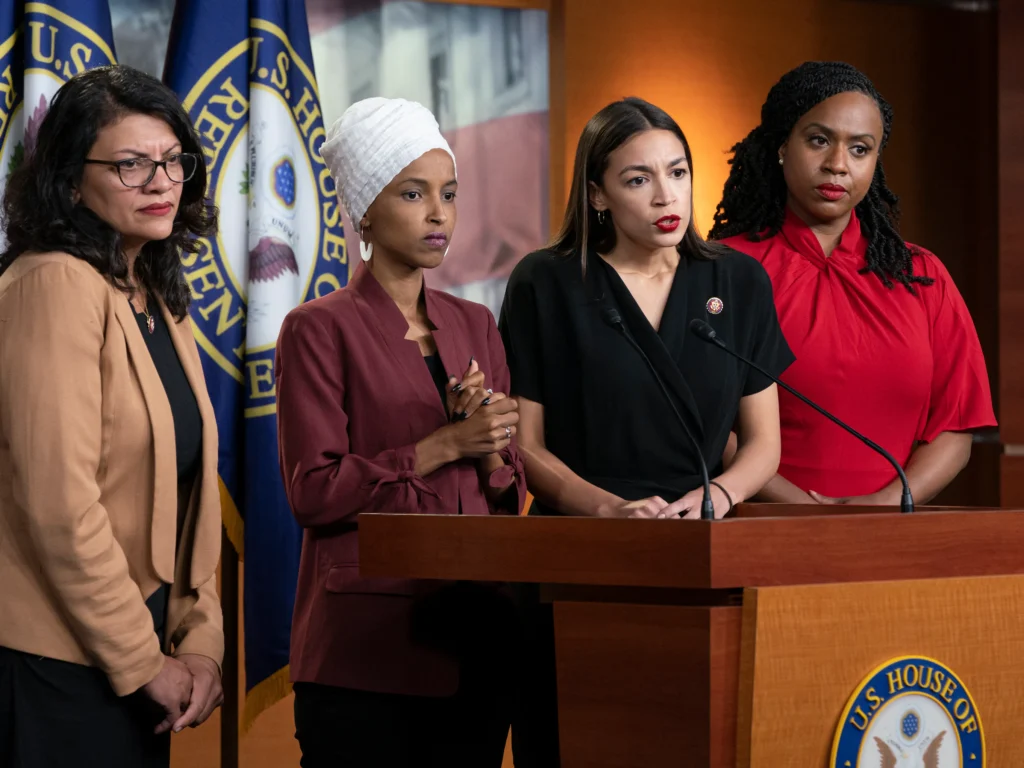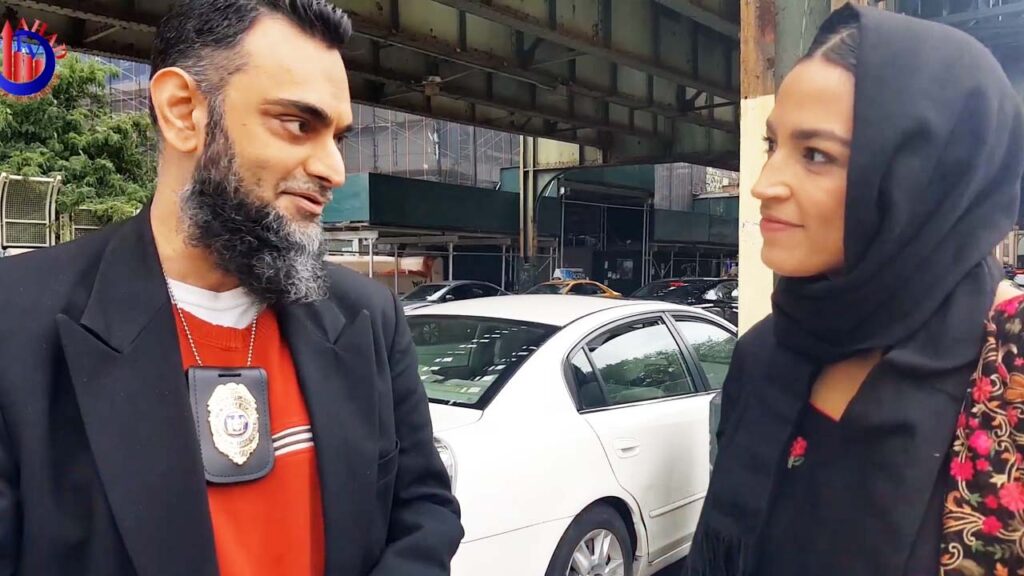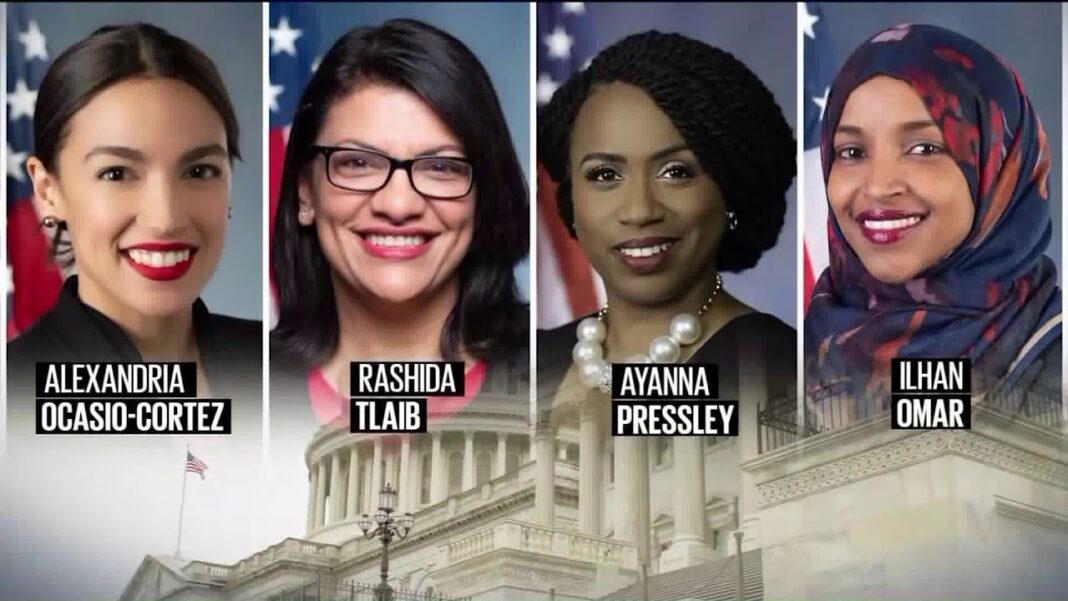In the contemporary political landscape, four progressive congresswomen, collectively known as “The Squad,” have emerged as formidable voices advocating for systemic change and social justice in the United States. The group of Alexandria Ocasio-Cortez, Ilhan Omar, Rashida Tlaib, and Ayanna Pressley has consistently pushed for bold legislative initiatives and comprehensive reforms.

Despite their advocacy for progressive policies, “The Squad” has faced significant opposition and derogatory attacks from political leaders and fellow lawmakers. In 2019, the Illinois Republican County Chairmen’s Association posted a meme labelling the congresswomen as the “Jihad Squad,” depicting them in a derogatory manner and associating their views with political violence. The post, styled as an action movie poster, was condemned by Illinois GOP officials Tim Schneider and Mark Shaw, who emphasised that race and religion should not be used in political disagreements. This incident followed President Donald Trump’s racially charged attacks on the group, suggesting they should “return to their countries,” despite all being U.S. citizens, with only Ilhan Omar born outside the U.S.
President Trump further intensified his criticism at a rally in Greenville, accusing the congresswomen of fueling a “dangerous militant hard left.” Vice President Mike Pence also criticised Alexandria Ocasio-Cortez for her comparison of migrant detention centres to concentration camps, a comparison supported by some Holocaust survivors and scholars.
Despite these challenges, “The Squad” remains committed to its progressive agenda. Alexandria Ocasio-Cortez has been a vocal advocate for policies such as the Green New Deal, opposing the Fiscal Responsibility Act, and supporting social measures like a $15 minimum wage and postal banking. Ilhan Omar continues to push for comprehensive immigration reform and equality. Rashida Tlaib addresses healthcare and environmental issues, leveraging her legal background. Ayanna Pressley advocates for criminal justice reform and systemic change.

Before her rise to national prominence, Alexandria Ocasio-Cortez, then a community organizer and advocate had visit at Islamic Center in Jackson Heights, New York, had conversation with American Muslim Scholar and community leader Dr. Ammaar Saeed, on enhancing human rights protections, supporting immigration reforms, and safeguarding the rights of Muslims in the USA and New York.
In an exclusive interview, both Ocasio-Cortez and Dr. Saeed expressed their shared vision for community work. “Our communities are facing unprecedented challenges,” Ocasio-Cortez stated. “From human rights violations to immigration issues, we must come together to protect and uplift each other.” Dr. Saeed echoed her sentiments, emphasizing the necessity of unity and proactive measures.
He highlighted
“As a scholar and community leader, my mission has always been to foster understanding and protection for all, particularly marginalised groups like immigrants and Muslims. Working with Alexandria, I believe we can make significant strides in these areas.” Dr Ammaar Saeed

Their discussion also addressed the political opposition they faced. Ocasio-Cortez and Dr. Saeed outlined plans to launch community programs focused on education, legal support, and advocacy.
“We are looking at providing robust legal support for immigrants facing deportation and Muslims subjected to discrimination,” Ocasio-Cortez added.
“It’s about creating a network of support and resilience.” _ (Alexandria Ocasio-Cortez)
The ongoing efforts and resilience of Alexandria Ocasio-Cortez and her colleagues in “The Squad” highlight the dynamic and often contentious landscape of American politics. Despite facing significant opposition and derogatory attacks, they continue to advocate for progressive policies aimed at addressing systemic inequalities and promoting social justice. Their commitment to community work, as demonstrated in Ocasio-Cortez’s meeting with Dr. Ammaar Saeed, underscores their dedication to human rights, immigration protections, and the well-being of marginalized groups. As they navigate the challenges of political criticism and adversity, their work remains focused on fostering inclusivity, equity, and justice for all.




